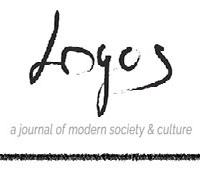The Originality of OWS
The political movements of the left that I have participated in over many decades were almost always focused on or prioritized particular issues (wars, civil liberties, civil rights, poverty, collective bargaining, etc.) and/or particular subsections of the population (African-Americans, women, gay people, immigrants, etc.). The authorities almost always took advantage of that focus to separate and isolate the movement from society generally. They were often successful. Even when the authorities failed to provoke general hostility to the movement, they were able to prevent the development of more than a general sympathy for it.
In the short history of OWS and its spread to date, I am struck by its impressive insistence on remaining a movement around a very general and inclusive critique of an unjust economy (99% against 1%) that has corrupted much of US politics and culture. The net result is a built-in systemic critique, sometimes explicit (remarkably often named as capitalism) and almost always implicit. The hesitation to choose among and focus on specific demands reflects the wisdom of maintaining the broad, systemic critique. The taboo against systemic critique – a legacy of post-war anti-communism – seems to be broken. Nonetheless, the struggle to select and prioritize specific demands needs to take time and great care, especially if that struggle is to be accomplished without losing the invaluable systemic critique and demand for change. Most other movements of the left could not accomplish that to their detriment and often destruction.
In its short history, OWS seems already well along in discovering and instituting a new kind of leadership system and organization. The task is daunting and its accomplishment has likewise eluded most left movements in the past. The polarities to avoid are (1) purely horizontal collectives lacking the coordination and shared focus without which massive duplications and wastes of energy and effort breed disorientation and demoralization, and (2) conflict-ridden power concentrations that dissipate and de-energize general initiative and enthusiasm. Here too, interesting explorations of how to navigate between these polarities are underway in OWS. The US left is littered with the debris of movements that crashed on these polarities and/or atrophied from settling into one or the other.
OWS is rooted in the mass disaffection felt about the basic political economy of the US. Those dominating economics, politics and culture seem determined to keep the society moving in just those directions that will deepen that disaffection and thereby strengthen OWS. Income and wealth inequality, alienation from politics, deteriorating job, educational and retirement opportunities all conspire to recruit for OWS. The increased stresses and strains of personal life and relationships do likewise. OWS has already managed to exert combined political and personal attractions on a broad public.
Since 2007, the US has been engaged in this sequence of social events: a capitalist crisis, a trickle-down economic recovery program (that helped the top but never trickled down to anyone else), and an austerity program to pay for that trickle down program. Europe experienced a parallel engagement. However, Europe had much more viable and in-tact labor unions and anti-capitalist political parties and party factions. They enabled the mobilization of Europeans against austerity programs and in some cases also against the trickle-down policies and crisis-ridden capitalism that produced austerity programs. They also reaffirmed and reinforced existing organizational patterns that did not attract much of the new energy emerging on the left.
In contrast, the US has taken longer to react and respond. Yet therein lies an important dialectic of opposites. Precisely because the US has long-declining and therefore weak labor unions and no significantly influential anti-capitalist parties, opposition to the crisis-trickle-down-austerity sequence takes much longer to form and mobilize. People in the US have to rebuild old shells of organization from the bottom up or build altogether new organizations. Yet with this difficulty comes a certain distance from and relative freedom to consider, evaluate and pick carefully among the many old habits, presumptions, organizational forms and styles that have demonstrated their strengths and weaknesses in and for left movements.
In Europe, those oppositional forces that seek to start afresh and independent of the older movements – for example, the various “indignant” groupings – slip quickly into disunity and tension with the existing left organizations. This weakens and divides the left just when the opposite is needed most. In the US, OWS may well be able to avoid that problem precisely because of the old left’s long period of decline and demoralization.
The stunning growth and social influence of OWS in its few weeks of existence augur well for its survival and maturation.

